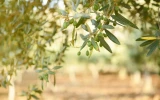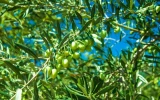Where Can You Buy Olive Trees? (9 Common Places)
Olive trees are cultivated in over 8 million hectares around the world. These trees can be purchased from a variety of sources, which offer a range of options in terms of varieties, sizes, and prices, to cater to the diverse needs of gardeners and agricultural enthusiasts. In this article, we will explore the nine common places where individuals can purchase olive trees, providing insights into the advantages and considerations associated with each source.
Olive trees can be purchased from various sources, including local nurseries, garden centers, online plant stores, specialized olive tree farms, agricultural supply stores, home improvement stores, botanical garden sales, farmer's markets, and landscape contractors.
Each source offers a range of varieties suitable for different climates and uses. Let's find out what makes each source unique in its offerings of olive trees.
Summary
- Local nurseries offer olive trees such as Arbequina and Manzanilla with prices ranging from $20 to $70 depending on the variety and size, providing a wide selection for climate compatibility and personal preference.
- Agricultural fairs provide an opportunity to buy directly from growers, with varieties like Frantoio and Leccino priced between $20 and $75, offering the chance to find area-acclimated trees and compare prices.
- Farmer's markets support local agriculture and often feature acclimatized trees, with local, specialty, and rare varieties priced between $15 and $60, allowing for direct interaction with growers for valuable care insights.
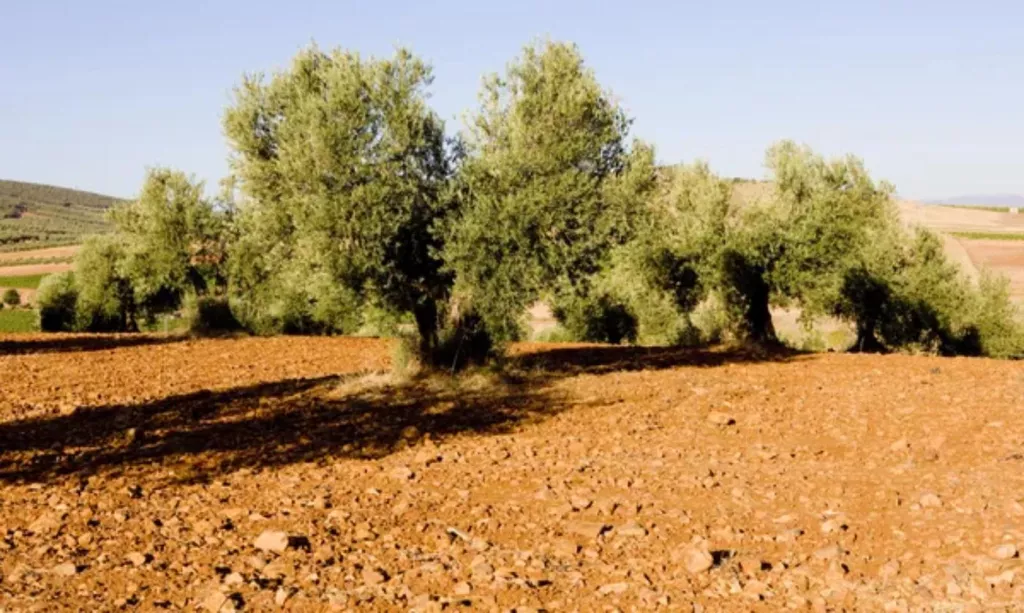
On this page:
- Purchase at Local Nurseries and Garden Centers
- Buy From Agricultural Fairs
- Order From Online Retailers
- Obtain Olive Seeds From Specialty Orchards
- Acquire From Landscape Contractors
- Shop From Farmer's Markets
- Check Out From Home Improvement Stores
- Try to Explore Plant Expos and Garden Shows
- Procure Olive Trees From Community Marketplaces
- Considerations When Buying Olive Trees
- How to Buy Olive Trees
- Planting and Care After Purchasing Olive Trees
Purchase at Local Nurseries and Garden Centers
Visiting your local nursery is a great way to find a variety of olive tree varieties suitable for your garden. These nurseries often carry Arbequina, Koroneiki, and Manzanilla trees, known for their adaptability and health benefits.
| Variety | Size | Estimated Price |
|---|---|---|
| Arbequina | 1-2 ft | $25-$50 |
| Manzanilla | 2-3 ft | $30-$60 |
| Picual | 3-4 ft | $40-$70 |
| Koroneiki | 1-2 ft | $20-$45 |
-
Selection: Local nurseries provide a wide selection, letting you choose based on size, climate compatibility, and personal preference.
-
Expertise: Staff at these centers can offer advice on the best soil types and care practices for your olive tree.
At garden centers, you can inspect the trees personally to gauge their health. Look for vibrant leaves and a sturdy trunk to ensure you are getting a robust tree. Here are some quick tips:
- Choose a variety based on your climate.
- Verify that the size is appropriate for your space.
- Ask for guidance on soil and care.
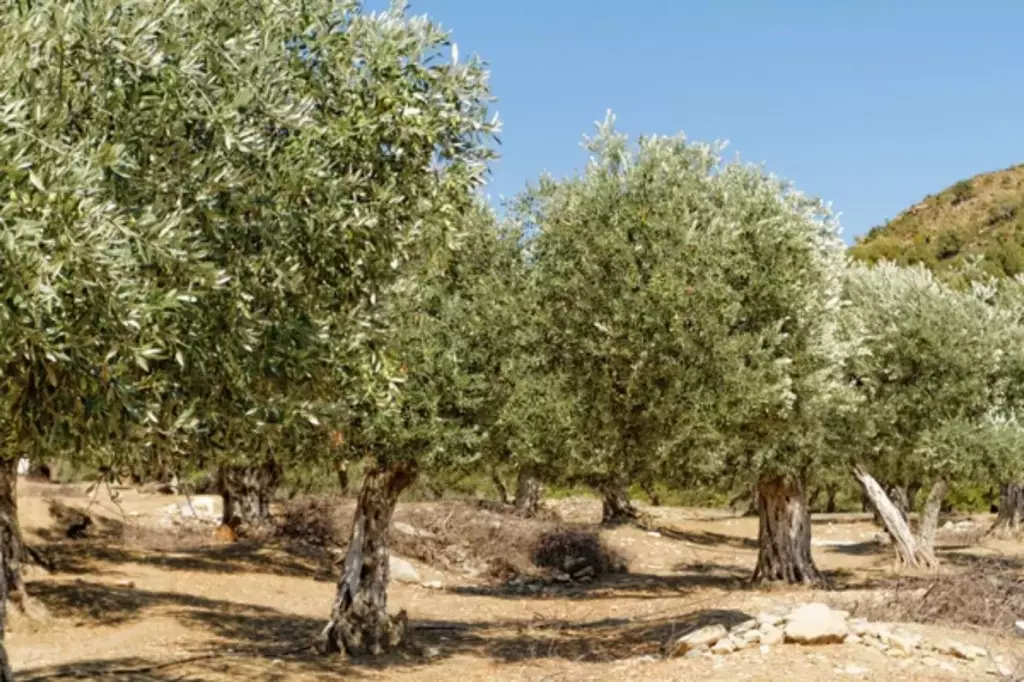
By going local, you support community businesses while finding the perfect olive tree for your landscape.
Buy From Agricultural Fairs
When you're looking to add an olive tree to your garden, agricultural fairs are an excellent place to start. Often, these fairs bring together local growers and nurseries, offering a wide selection of plants.
| Variety | Size | Estimated Price |
|---|---|---|
| Frantoio | 1-2 ft | $20-$40 |
| Leccino | 2-3 ft | $35-$55 |
| Picholine | 3-4 ft | $45-$75 |
| Hojiblanca | 2-3 ft | $30-$60 |
At an agricultural fair, you have the chance to see the olive trees in person, which can help in buying the right one for your space.
- Find olive trees acclimated to your area
- Ask questions about care and fruit production
- Compare varieties and prices in one location
Many growers are happy to share their knowledge on the best practices for cultivating a healthy plant that will eventually produce delicious fruit.
This firsthand advice can be invaluable, especially if you're new to caring for olive trees. Additionally, since these events are typically geared towards the exhibition and sale of agricultural products, you may discover different olive tree varieties that thrive in your region.
- Inspect: Examine the trees for signs of health.
- Consult: Talk to experts about care and maintenance.
- Purchase: Buy directly from passionate growers.
Finally, agricultural fairs often provide the perfect opportunity to support your local agricultural community.
By purchasing an olive tree at these events, you're not only getting a quality plant, but you're also contributing to the local economy. Remember to bring cash, as some vendors may not accept credit cards.
Order From Online Retailers
When you're looking to buy olive trees, online retailers offer a hassle-free way to find a wide variety of options. Nature Hills Nursery and Fast Growing Trees are reputable online shops that specialize in selling a range of olive trees.
| Variety | Size | Estimated Price |
|---|---|---|
| Arbequina | 1-3 ft | $20-$100 |
| Koroneiki | 2-4 ft | $25-$90 |
| Picual | 1-3 ft | $20-$80 |
| Manzanilla | 2-4 ft | $30-$95 |
You can check out from Fast Growing Trees, with an impressive selection and a user-friendly website, making your shopping experience straightforward.
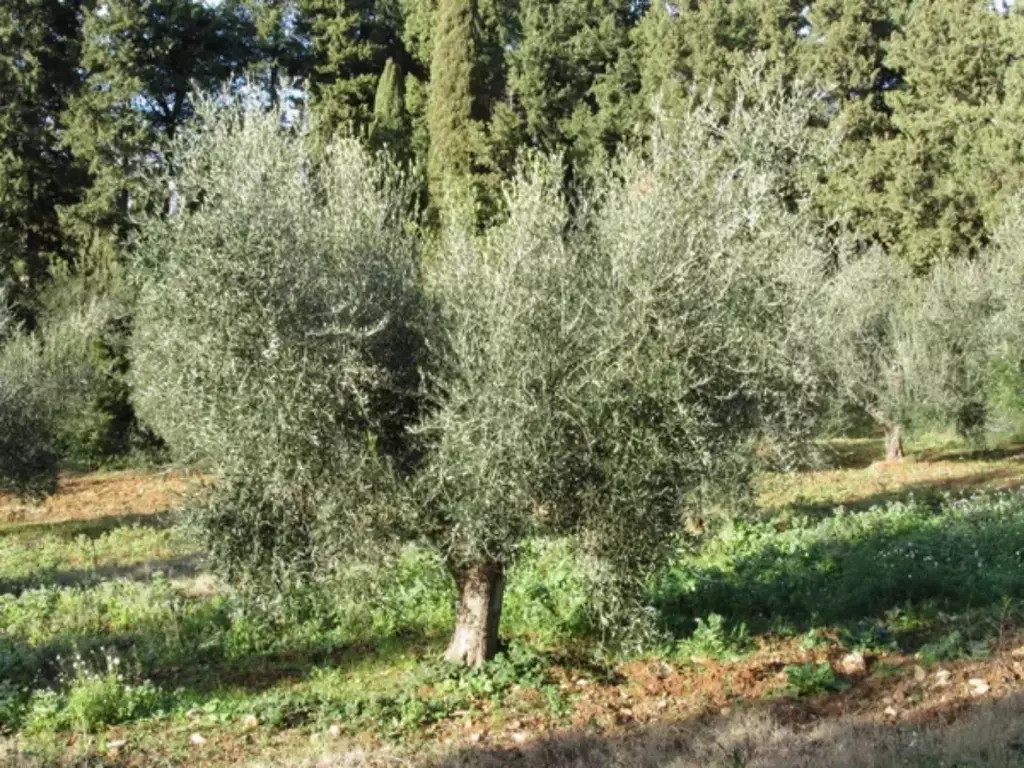
- Nature Hills Nursery: Known for a large selection, including mature olive trees.
- Willis Orchard: Visit their website for unique olive tree varieties.
- Olives Unlimited: Get help with selection and tree installation throughout California.
Most online retailers provide detailed shipping information, ensuring your olive tree arrives safely on your doorstep. Many also include a warranty on plants, which can give you some peace of mind regarding the quality and health of your purchase.
In addition to olive trees, some retailers may offer products like olive oil or resources on olive tree news, helping you stay informed and supplied.
Obtain Olive Seeds From Specialty Orchards
When you're looking for olive trees, specialty orchards is a treasure trove. These experts focus solely on olives, ensuring you get both variety and quality.
| Variety | Size | Estimated Price |
|---|---|---|
| Frantoio | 2-3 ft | $30-$65 |
| Leccino | 3-4 ft | $40-$80 |
| Moraiolo | 1-2 ft | $25-$50 |
| Taggiasca | 2-3 ft | $35-$70 |
Benefits of sourcing olive seeds from specialty orchards
-
Diverse varieties: Specialty orchards often cultivate a broad selection of olive types, some of which are rare or specialized for certain climates. This diversity allows growers to choose varieties that best suit their needs, whether for table olives, oil production, or ornamental purposes.
-
Quality and purity: These orchards focus on producing high-quality seeds with attention to genetic purity. This is crucial for ensuring the health and productivity of the future trees. The specialized knowledge and techniques used in these orchards can lead to superior seed quality compared to generalist nurseries.
-
Expertise and advice: Specialty orchards are usually operated by experts who have a deep understanding of olive cultivation. This means they can offer valuable advice on care, growth conditions, pest management, and harvesting. For someone new to olive growing, this expertise can be incredibly helpful.
-
Sustainability and adaptation: By selecting olive varieties from specialty orchards, growers can find options that are adapted to local conditions, potentially requiring fewer inputs and being more resistant to pests and diseases. This can contribute to more sustainable agricultural practices.
Acquire From Landscape Contractors
When you're looking to add a timeless evergreen to your landscape, consider reaching out to landscape contractors. These professionals excel in evaluating your space to recommend the perfect size and position for your new olive tree.
| Variety | Size | Estimated Price |
|---|---|---|
| Arbequina | 4-6 ft | $100-$200 |
| Manzanilla | 4-6 ft | $110-$210 |
| Picual | 5-7 ft | $120-$250 |
| Koroneiki | 3-5 ft | $90-$180 |
- Expertise: They possess the knowledge about olive tree varieties that best thrive in your area.
- Installation: Contractors handle the planting, ensuring that your olive tree gets a sturdy start.
- Long-term care: They advise on long-term care to keep your tree healthy.
Landscape contractors often have access to high-quality olive trees that may not be easily found at local nurseries or garden centers. If you're seeking a specific type of olive tree, these professionals can often source them for you, ensuring authenticity and health.
-
Determine size and position: The contractor can assess your garden's layout, sun exposure, and soil type, which are critical for the well-being of an olive tree.
-
Selection of evergreen: Contractors can guide you on the selection of olive tree varieties that maintain their foliage year-round, enhancing your landscape's beauty regardless of the season.
Choosing a reputable contractor can make the process seamless and ensure that your olive tree becomes a cherished part of your garden for years to come. Remember to converse with your contractor about the growth habits of olive trees to align with your landscaping goals.
Shop From Farmer's Markets
At farmer's markets, you often find a variety of local goods, including olive trees. These markets are an excellent place for you to meet and interact directly with growers. Conversations with vendors can offer valuable insights into the care and history of their trees.
| Variety | Size | Estimated Price |
|---|---|---|
| Local varieties | 1-2 ft | $15-$30 |
| Specialty varieties | 2-3 ft | $25-$50 |
| Rare varieties | 1-3 ft | $30-$60 |
| Mixed varieties | 1-2 ft | $20-$40 |
When browsing at a farmer's market, here's a simple guide to help you:
- Ask questions: Vendors usually love sharing tips on olive tree care.
- Inspect the trees: Look for healthy, green foliage and a sturdy trunk.
- Check for size: Olive trees can range from small potted plants to larger trees ready for your yard.
Why consider farmer's markets?
- You support local agriculture.
- Trees are often acclimatized to your area.
- You might discover rare or unique varieties.
Remember to bring a vehicle suitable for transporting your new olive tree safely home. Enjoy the friendly atmosphere at these markets and take advantage of the chance to buy directly from those who cultivate the trees.
Check Out From Home Improvement Stores
When you're on the hunt for an olive tree, home improvement stores are a great place to start. These stores typically offer a variety of olive trees that are well-suited for growing indoors or outdoors, depending on your climate and space.
| Variety | Size | Estimated Price |
|---|---|---|
| Arbequina | 1-3 ft | $19.99-$49.99 |
| Koroneiki | 2-4 ft | $24.99-$59.99 |
| Picual | 1-2 ft | $29.99-$39.99 |
| Manzanilla | 2-3 ft | $34.99-$54.99 |
Tools and gardening supplies like shovels and pruning shears are readily available to help you plant and care for your olive tree.
You'll also find essential fertilizer options tailored to promote the health and growth of your tree. Remember, olive trees thrive with the right nutrients.
Home improvement stores often carry different sizes of pots and containers, giving you the flexibility to choose one that best fits your space.
Whether you need a small pot for a young tree or a larger one to accommodate growth, you're covered. Plus, you can pick up mulch and compost to help retain moisture and enrich the soil, ensuring your olive tree has the best environment to flourish in.
- Stock up on tools for planting
- Select the perfect pot or container
- Purchase fertilizer, mulch, and compost for tree health
Try to Explore Plant Expos and Garden Shows
Plant expos and garden shows are all about the green and growing, with vendors who specialize in a variety of plants, including a selection of olive trees tailored to grow in your climate.
| Variety | Size | Estimated Price |
|---|---|---|
| Exotic varieties | 1-3 ft | $30-$100 |
| Award-winning varieties | 2-4 ft | $50-$150 |
| Heirloom varieties | 1-2 ft | $25-$75 |
| New releases | 2-3 ft | $40-$90 |
At an expo, you'll find a wide range of olive trees, often with experts on hand to talk you through the criteria for selecting the best tree for your garden.
You'll want to ask about the tree's preferred exposure to sunlight and appropriate soil conditions to ensure a successful planting.
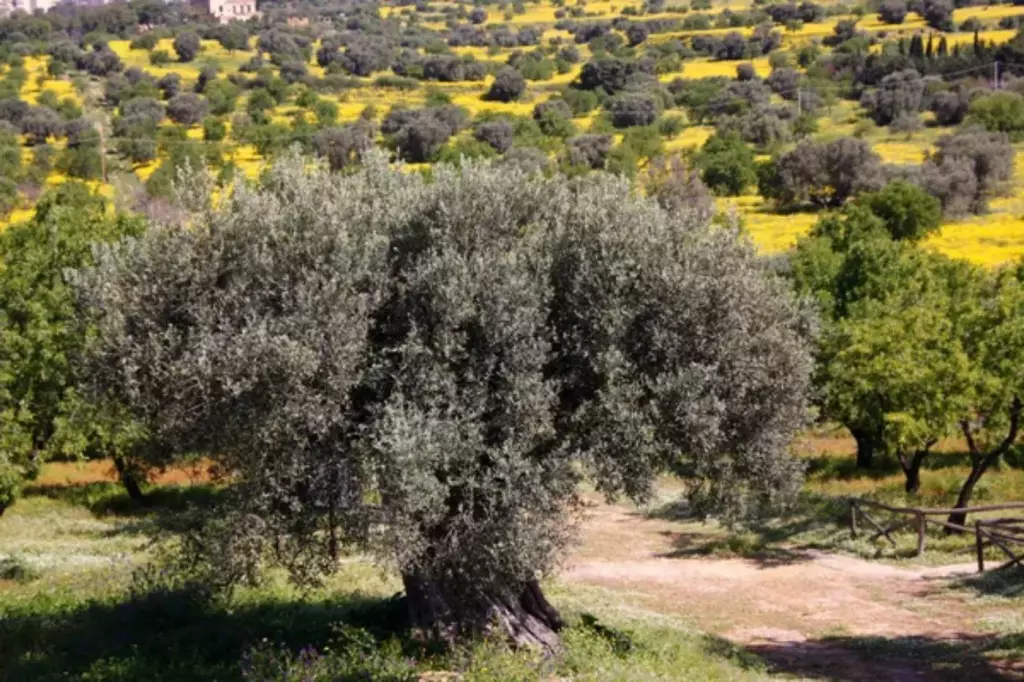
- Check for expos: Visit local expo centers or gardening organizations' websites to find upcoming events.
- Screen the options: Look for vendors at expos that offer a diversity of olive tree varieties and are knowledgeable about the care they need.
- Research: Learn about necessary tree care in advance — like the use of compost and mulch — so you can ask informed questions and choose the best tree for your garden’s conditions.
Remember, plants at these events are often more than just eye candy; they're future inhabitants of your garden. Take the opportunity to inspect the trees closely, making sure they're healthy and well-cared for.
Bring your curiosity and your questions, as those working the booths are usually eager to share their expertise.
Procure Olive Trees From Community Marketplaces
When you're on the hunt for olive trees, consider exploring local community marketplaces. These are platforms where individuals and small businesses sell plants directly to buyers like you.
They often have a variety of olive trees ranging from young saplings to mature specimens.
| Variety | Size | Estimated Price |
|---|---|---|
| Local favorites | 1-2 ft | $10-$30 |
| Organic varieties | 2-3 ft | $20-$50 |
| Small-batch varieties | 1-3 ft | $15-$45 |
| Imported varieties | 2-4 ft | $25-$60 |
Examples of community marketplaces
- Craigslist: Check listings in the garden section.
- Nextdoor: A neighborhood forum where locals might advertise trees for sale.
- Facebook marketplace: Here you can find sellers in your area.
Tips for shopping at community marketplaces
- Always inquire about the tree's health and age.
- Secure photos of the actual tree before purchase.
- Arrange to see the tree in person, if possible.
Remember, dealing with community marketplaces involves person-to-person interaction, so communication is key. You might even negotiate prices or get advice on olive tree care from experienced growers. Keep an eye out for local ads or community boards for the best finds.
Considerations When Buying Olive Trees
When looking for the perfect olive tree to purchase, there are several key factors to bear in mind, such as the following:
-
Light requirements: Olive trees need full sunlight to grow well. Find a location where the tree can receive at least six hours of direct sunlight daily.
-
Watering needs: Initially, olive trees require regular watering to establish a robust root system, despite being drought-tolerant after the first few seasons.
-
Temperature preferences: Olive trees flourish in warmer climates, ideally within USDA growing zones 9-11. Protect the trees from frost, which can be harmful, by selecting a variety that's suited to your local climate conditions.
-
Soil type: Fertile soil with good drainage is essential for olive trees. Assess your soil type; amend it if necessary to avoid excessively clayey or sandy conditions.
-
Size and growth: Consider the amount of space you have available. Olive trees can grow to heights of 30-40 feet. If you have limited space, choose a dwarf or potted variety to prevent overcrowding. A visual guide of the different olive tree varieties can be found here.
How to Buy Olive Trees
When you're in the market for an olive tree, start by considering the variety and size of the tree you want. Are you looking for a young tree to grow and nurture, or a mature tree to provide immediate landscape impact?
Tips to consider when selecting your olive trees
- Identify the type of olive tree you want. Factor in the tree's eventual size and fruit-bearing potential.
- Assess the space where you plan to plant it to ensure proper fit and growth potential.
Tips when buying from online nurseries
Purchasing olive trees online can offer a wider selection. Websites like Olive Knowledge provide a plethora of options.
- Compare prices and reviews to ensure you're getting a good deal and a healthy tree.
- Look into the shipping policies; some nurseries offer guarantees of safe arrival.
Considerations when buying from local sources
- Visit local nurseries to see trees in person. This allows you to handpick your tree and potentially avoid shipping costs.
- Local experts can offer tailored advice for tree care in your specific climate and region.
Planting and Care After Purchasing Olive Trees
After bringing home your olive tree, the subsequent steps are crucial to ensure its growth and fruit production. Proper planting, timely pruning, consistent watering, and appropriate fertilizer application are key.
Pruning
Prune your olive tree to maintain its shape and promote healthy growth. In the spring, remove any dead or diseased branches to encourage new growth.
Focus on creating an open canopy that allows light to penetrate, which is essential for fruit production.
Watering
Olive trees need a balance in moisture. When you first plant your sapling, water it thoroughly to settle the soil. Afterward, aim for consistent watering, letting the soil dry out between waterings.
Olive trees are drought-resistant but don't let them go too long without water, especially in the growing season.
Fertilizer application
Your olive tree will benefit from fertilization once in spring and again in mid to late summer.
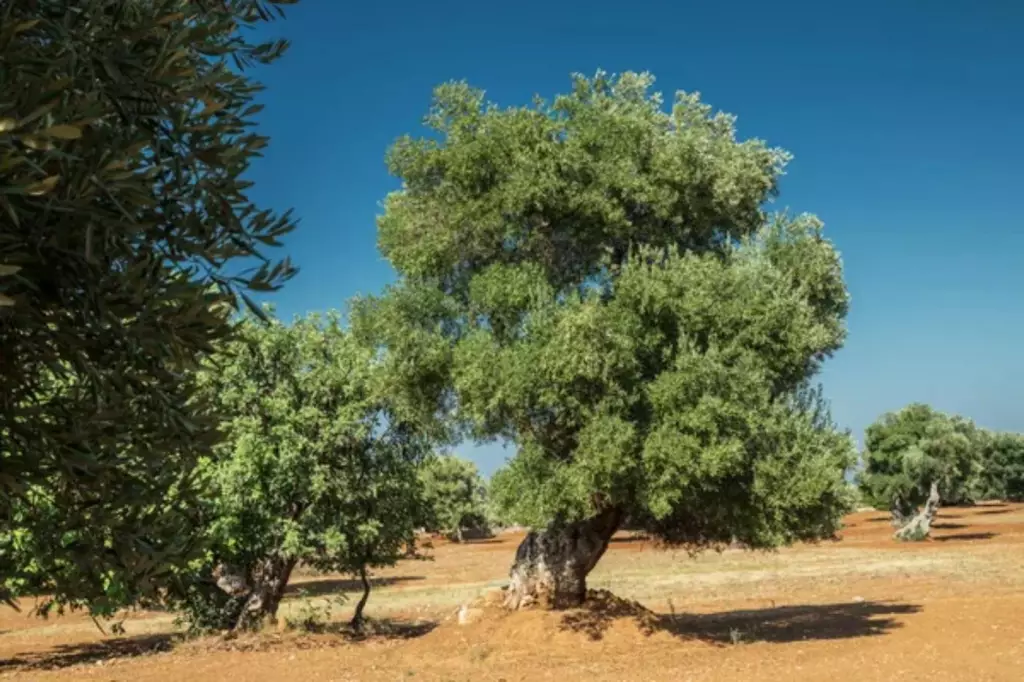
Use a balanced fertilizer to support the tree's growth and fruit set. Be mindful not to over-fertilize, which can harm the tree and reduce fruit production.
Harvesting
Harvesting usually occurs when fruits are green to dark purple, signaling maturity. You'll know it's time when the fruit's skin becomes slightly softer and tastes ripe.
Handpick or use garden tools, being gentle to avoid damaging the tree and its future yield.
